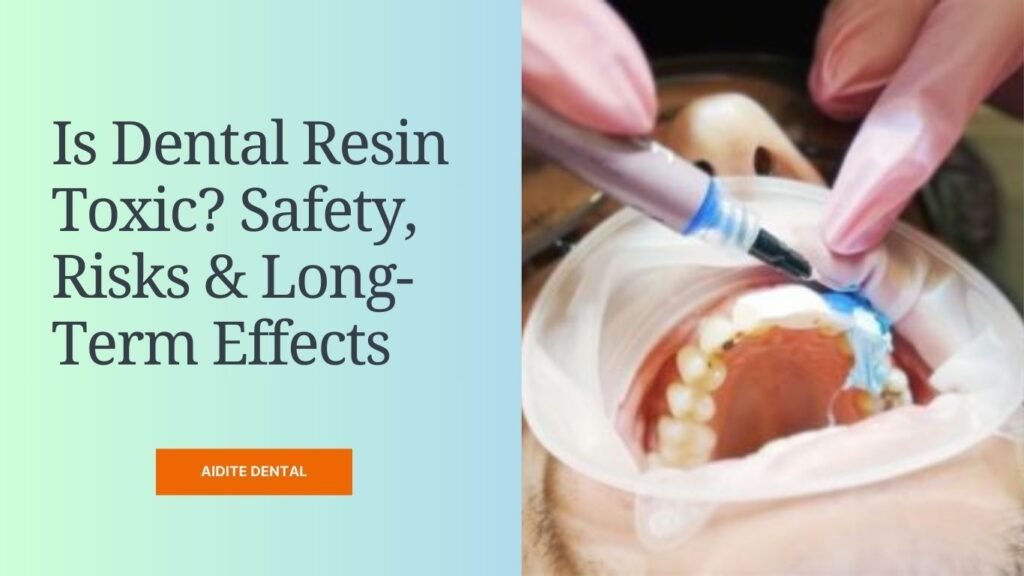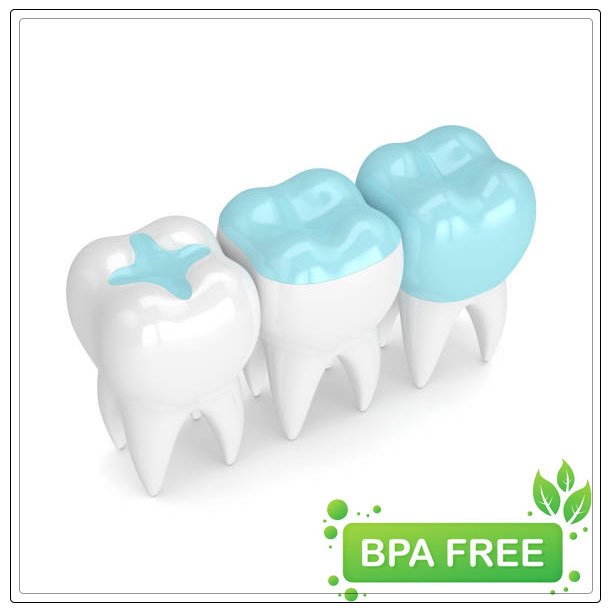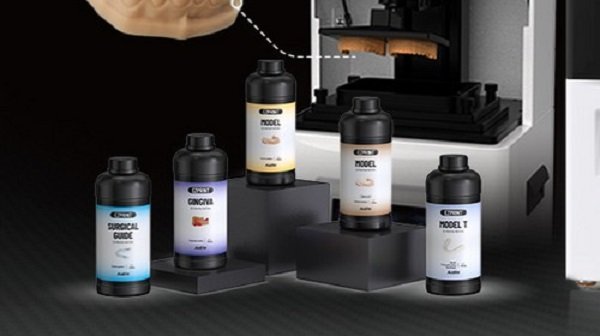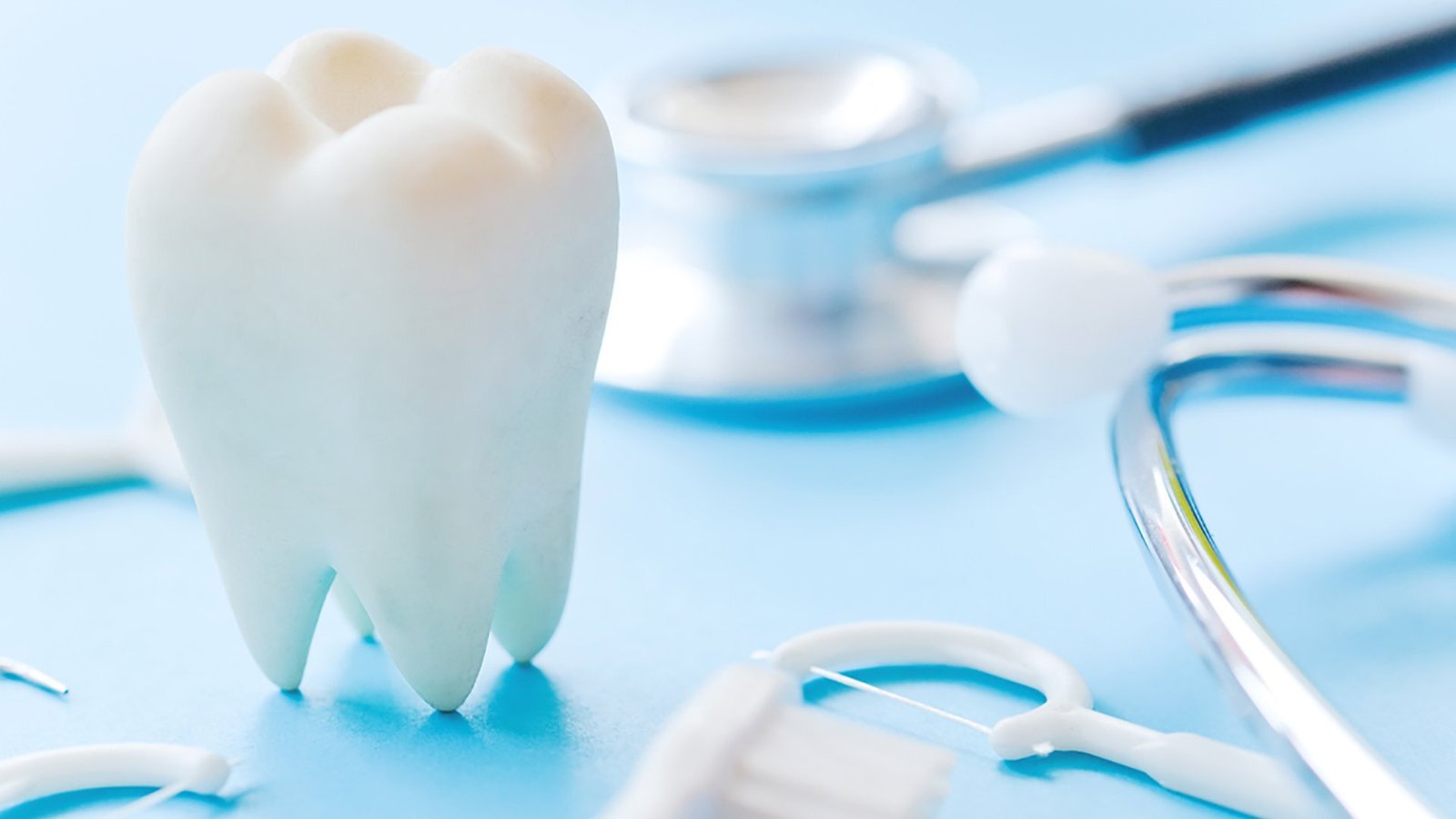Dental resins are important materials in restorative dental treatment in contemporary dentistry. However, many patients and professionals wonder, is dental resin toxic? This is a concern since resin-based materials contain chemical components. Dental resins are widely used for restorative dentistry, so knowing the biocompatibility of dental resins is important in order to perform safe treatments. A look into if dental composite resin safety is truly worrisome, including questions of whether dental resin is safe for long-term! That’s where Aidite comes in. Aidite, a leading manufacturer of professional dental materials, provides high-quality, biocompatible dental resins designed for safety and longevity.

- What is Dental Resin?
- Is Dental Resin Toxic? Examining the Evidence
- Dental Composite Resin Safety Measures
- Is Dental Resin Safe for Long-Term Use?
- Comparing Different Resin Types: Is Resin Non Toxic?
- What does the Science Say about Biocompatibility of Dental Resins?
- Strategies for Reducing Dangers When Working With Dental Resin
- FAQs
What is Dental Resin?
Dental resin is a composite material used to create tooth-colored restorative fillings, crowns, veneers, or bonding. It consists of:
- Monomeres (bisphenol A-glycidyl methacrylate, UDMA)
- Fillers (glass or silica)
- Initiators and stabilizers
These elements offer reinforcing strength, durability, and beauty. But there are worries about the toxicity of these materials, which brings questions like, Is resin nontoxic? And are resin fillings toxic to humans?
Is Dental Resin Toxic? Examining the Evidence
The answer to is dental resin toxic involves examining its contents, risk factors, and safety relative to other options. The major risk factors are associated with BPA, exogenous monomers, and chronic exposure, but scientific data has proved that well-polymerized dental resin can be considered safe. It focuses on some important points, including chemical composition, biocompatibility, safety, and comparisons to other materials to determine their overall biocompatibility and safety in dentistry.
1. The Chemical Composition of Dental Resin
Bisphenol A (BPA) and related compounds are present in many dental resins. The exposure of BPA, shifting BPA doubts from focusing on only endocrine disruption to the concern is dental resin toxic to human health.ental resin toxic to human health.

- Unpolarized monomers may leach into the saliva, although the amount is very small.
- Research has found that proper curing and polymerization decrease the release of hazardous chemicals.
- The biocompatibility of dental resin improves when high-quality materials and proper techniques are used.
2. Are Resin Fillings Toxic?
As one of the most common types of dental fillings, many patients wonder, are resin fillings toxic?
- Clinical studies show that resin fillings are safe for long-term use.
- The release of residual monomers is minor only in the early period following placement.
- Dental composite resin safety improves with correct curing and through proper maintenance from day-to-day wear and tear.
3. Is Dental Composite Toxic Compared to Other Materials?
The question is dental composite toxic arises when compared to materials like amalgam or ceramic.
- Amalgam is mercury based root filling, which is even more toxic.
- When used correctly, composite resins are considered biocompatible and non-cytotoxic.
- Clinical studies over the long term prove that the biocompatibility of dental resin is more than the limit of safety.
Dental Composite Resin Safety Measures
Here’s how dentists take precautions for dental composite resin safety:
- Opting for BPA-Free Resins: Low-toxicity alternative materials are available.
- Proper Curing: Complete polymerization avoids excess monomer release.
- Ventilation and Safety Measures: Dentists also use barrier protection to limit patients exposure.
- Routine Dental Visits: Ensuring the resin fillings are intact prevents breakdown, wear, and exposure to degraded materials.
Following these steps dramatically reduces the potential risks that is dental resin toxic concern.
Is Dental Resin Safe for Long-Term Use?
The common question here is, “Is dental resin safe or not for long-term use?” let’s see what the facts are:
- Studies show no serious health risks with properly cured composite resins
- Proper manufacturing leads to low, non-harmful levels of exposure to BPA.
- Modern composite materials were created around a durable core combined with a resin that is less likely to chemically leach out into the oral cavity.
- These high wear-resistant and degradation-resistant characteristics qualify resin-based restorations to serve a long term.
- Consistent visits to the dentist make them last longer, as dentists can keep an eye on how those resin-based fillings are holding up.
- Good quality dental resins like Aidite ones are manufactured for safety and biocompatibility to provide long-lasting and good performance.
As long as professional guidelines are followed, dental composite resin safety is not a major concern.
Comparing Different Resin Types: Is Resin Non Toxic?
With the vast array of resin types out there, a popular argument is “is resin non toxic?” Here’s how they compare:
| Resin Type | Toxicity Level | Safety Features |
| BPA-Based Resins | Moderate | Proper curing reduces exposure |
| BPA-Free Resins | Low | Safer alternative with reduced toxicity |
| Ceramic-Based Resins | Very Low | Biocompatible and durable |
Although toxicity is still an issue with all dental composites, a great deal of research has gone into the development of safer materials. Moreover, the resins of Aidite were created with a strong focus on safety, so that they are minimally toxic and possess excellent biocompatibility. Learn more about Aidite’s stable and reliable dental resins here.

What does the Science Say about Biocompatibility of Dental Resins?
The biocompatibility of dental resin materials is assessed based on:
- Cytotoxicity effects on cells)
- Mutagenicity (risk of DNA damage)
- Allergenic potential
Recent studies confirm:
- Severe health risks are almost nonexistent as compared to the safety standards for most dental resins.
- Proper application and material choice is a guarantee of patient safety.
- There is less monomer released in the case of high-quality resins.
The conclusion is that the biocompatibility of dental resin is high when best practices in the placement are followed.
Strategies for Reducing Dangers When Working With Dental Resin
The next precautions minimize exposure to the dental resin for those still asking, “Is dental resin toxic?”
- Select BPA-Free Resins: Always request non-toxic materials from your dentist.
- Maintain Daily Oral Hygiene: Do not let the resin deteriorate through poor oral hygiene.
- Routine Visit to Dentists: General cleanings help keep dental composite resin safe.
- Minimize Direct Exposure: Cut down on exposure you do not have to get while curing.
By following these steps, the question of whether dental resin is safe becomes much less of a concern for patients and professionals.
FAQs
Q1. Is Dental Resin Toxic for Children?
Studies have indicated minimal toxicity risks, provided they are appropriately cured. Most pediatric dentists use BPA-free resins anyway because lacing resin with BPA is a bad practice.
Q2. Are resin fillings toxic over time?
Only a small amount of monomer is released, so it is not at dangerous levels. Do routine dental maintenance to ensure dental composite resin safety.
Q3. Is resin non toxic compared to amalgam?
Yes, resin is safer than mercury-based amalgam. But it needs to be cured properly in order to make it low-toxicity.
Q4. Is there BPA in dental resin?
BPA-free resins are available, but some do contain it. The selection of the resins without BPA reduces the biocompatibility of dental resin.
Q5. Is dental composite toxic if swallowed?
Eating cured resin is normally harmless but should be avoided if the resin has not been completely cured.
Conclusion: Is Dental Resin Toxic?
So, is dental resin toxic? That answer depends on the quality of the materials, application, and curing process. Dental composite resin safety associated with modern dentistry is well-regulated, and health risks are low. For added safety, it is always recommended to speak with a qualified dentist to help you decide which is the most suitable resin material for your procedure. Aidite offers the best dental resins that meet CE, ISO, and FDA safety standards for those looking for high-quality and safe products. As always, please have an actual dentist help you decide upon what resin is the best for your type of treatment.



